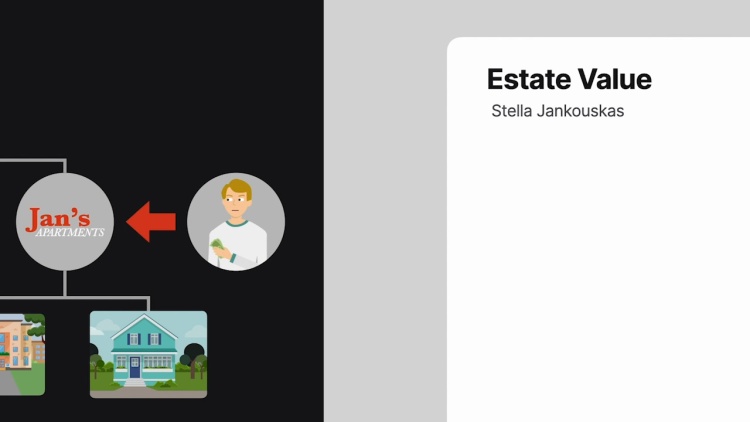Adams v. Jankouskas
Delaware Supreme Court
452 A.2d 148 (1982)
- Written by Craig Conway, LLM
Facts
At the time of her marriage to John Jankouskas (plaintiff), Stella Jankouskas was the owner and operator of a small, unprofitable beauty shop. It was the second marriage for both John and Stella, and each had children from prior marriages. During her marriage with John, Stella established a corporation with all shares of common stock issued in her name. The corporation purchased an apartment building that John renovated over a five-year period. Subsequently, Stella moved her beauty shop into the building. The corporation also acquired a home that became the Jankouskases’ residence. John paid monthly rent to the corporation for the Jankouskases’ joint use of the home. The income earned by John and Stella was pooled together into the Jankouskases’ joint account or the corporation’s account and was controlled by Stella. Stella died, leaving an estate valued at approximately $350,000. However, John received only about $40,000 of personal property and some other items. The remainder of Stella’s estate was bequeathed to Stella’s niece, Dolores Adams, whose mother, Charlotte Adams (defendant), was the executrix of Stella’s estate. John filed a petition seeking equity from the apartment building, the home, and other assets acquired during the marriage. Charlotte and Dolores considered these to be the sole assets of Stella’s estate. Following a hearing, the trial court awarded John 50 percent of Stella’s estate. The court concluded that the couple's financial arrangement gave rise to either a constructive or resulting trust for John’s benefit. Charlotte and Dolores appealed.
Rule of Law
Issue
Holding and Reasoning (Moore, J.)
What to do next…
Here's why 904,000 law students have relied on our case briefs:
- Written by law professors and practitioners, not other law students. 47,100 briefs, keyed to 995 casebooks. Top-notch customer support.
- The right amount of information, includes the facts, issues, rule of law, holding and reasoning, and any concurrences and dissents.
- Access in your classes, works on your mobile and tablet. Massive library of related video lessons and high quality multiple-choice questions.
- Easy to use, uniform format for every case brief. Written in plain English, not in legalese. Our briefs summarize and simplify; they don’t just repeat the court’s language.





